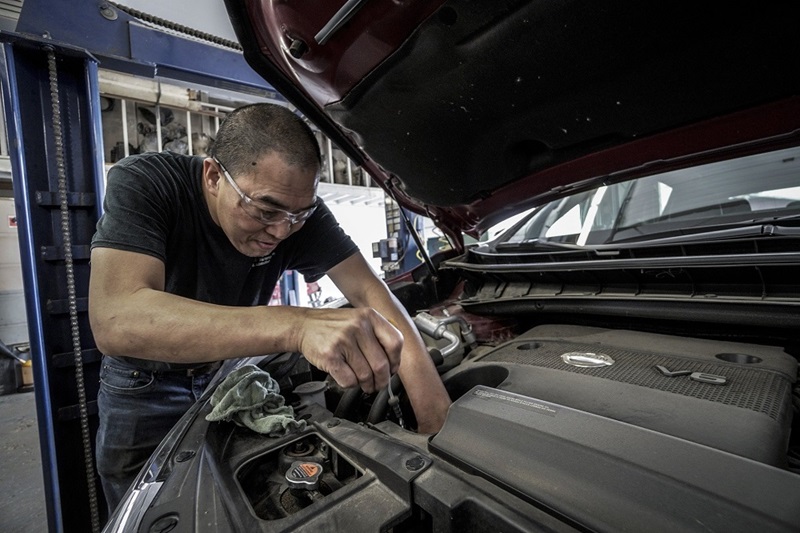
Introduction: Auto mechanics play a crucial role in keeping vehicles running smoothly and safely. Within the field of auto mechanics, there are various specializations that mechanics can pursue to enhance their skills and expertise. In this guide, we will explore different specialties within auto mechanics, including their roles, responsibilities, required skills, and career opportunities.
Automotive Technician:
- Automotive technicians, also known as general auto mechanics, perform a wide range of repair and maintenance tasks on vehicles.
- Responsibilities may include diagnosing and repairing mechanical and electrical issues, performing routine maintenance services, and conducting vehicle inspections.
- Skills required include proficiency in automotive systems and components, diagnostic skills, and the ability to use diagnostic tools and equipment effectively.
Brake Technician:
- Brake technicians specialize in inspecting, repairing, and replacing brake components to ensure safe braking performance.
- They diagnose brake issues, such as squealing brakes or brake pedal pulsation, and perform repairs or replacements as necessary.
- Brake technicians must have a thorough understanding of brake systems, including hydraulic systems, brake pads, rotors, callipers, and drum brakes.
Transmission Technician:
- Transmission technicians specialize in diagnosing and repairing issues related to automatic and manual transmissions.
- They perform tasks such as transmission fluid changes, clutch replacements, and transmission rebuilds or replacements.
- Transmission technicians must have a deep understanding of transmission systems, including gear ratios, torque converters, and hydraulic systems.
Engine Technician:
- Engine technicians, also known as automotive machinists, focus on diagnosing and repairing engine-related issues.
- They may perform tasks such as engine diagnostics, cylinder head repairs, engine rebuilds, and performance upgrades.
- Engine technicians must have a strong understanding of engine components, including pistons, valves, camshafts, and crankshafts, as well as knowledge of engine management systems.
Electrical Technician:
- Electrical technicians specialize in diagnosing and repairing electrical and electronic systems in vehicles.
- They troubleshoot issues such as faulty wiring, electrical shorts, and malfunctioning electronic components.
- Electrical technicians must have expertise in electrical systems, including wiring diagrams, circuit testing, and computer diagnostics.
HVAC Technician:
- HVAC (Heating, Ventilation, and Air Conditioning) technicians focus on diagnosing and repairing issues related to vehicle climate control systems.
- They perform tasks such as A/C system inspections, refrigerant recharging, heater core replacements, and compressor repairs.
- HVAC technicians must have knowledge of refrigeration systems, HVAC components, and environmental regulations related to refrigerants.

Suspension and Steering Technician:
- Suspension and steering technicians specialize in diagnosing and repairing issues related to vehicle suspension and steering systems.
- They perform tasks such as wheel alignments, suspension component replacements, and steering system repairs.
- Suspension and steering technicians must have expertise in suspension geometry, steering linkage, shock absorbers, and ball joints.
Diesel Engine Technician:
- Diesel engine technicians focus on diagnosing and repairing issues specific to diesel-powered vehicles.
- They perform tasks such as diesel engine diagnostics, fuel system repairs, turbocharger replacements, and emissions control system repairs.
- Diesel engine technicians must have a deep understanding of diesel engine technology, including fuel injection systems, glow plugs, and particulate filters.
Performance Tuner:
- Performance tuners specialize in optimizing vehicle performance by tuning engine management systems for increased power and efficiency.
- They may perform tasks such as ECU (Engine Control Unit) remapping, fuel system upgrades, and turbocharger installations.
- Performance tuners must have knowledge of engine tuning principles, fuel injection systems, and dyno testing procedures.
Hybrid and Electric Vehicle Technician:
- Hybrid and electric vehicle technicians specialize in diagnosing and repairing issues specific to hybrid and electric vehicles.
- They perform tasks such as battery diagnostics, electric motor repairs, and hybrid system maintenance.
- Hybrid and electric vehicle technicians must have expertise in high-voltage electrical systems, battery technology, and hybrid drivetrain components.
Conclusion:
Auto mechanics have the opportunity to specialize in various areas of vehicle repair and maintenance, depending on their interests and career goals. Whether focusing on brakes, transmissions, engines, electrical systems, or specialized vehicles like hybrids and electric cars, each specialty offers unique challenges and opportunities for advancement. By honing their skills and expertise in a specific area, auto mechanics can become valuable assets to automotive repair shops, dealerships, and specialty garages, contributing to the safe and reliable operation of vehicles on the road.




0 Comments